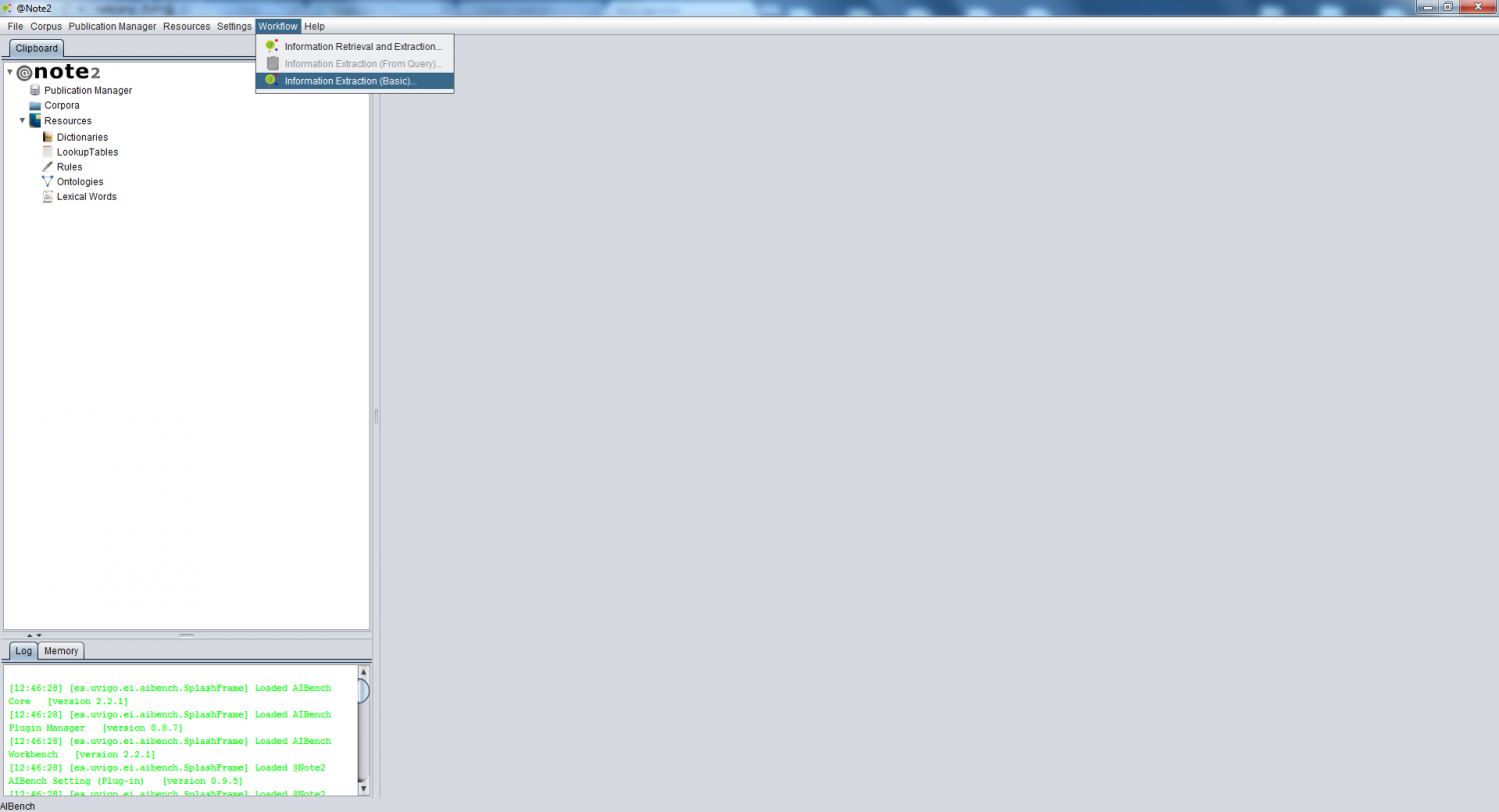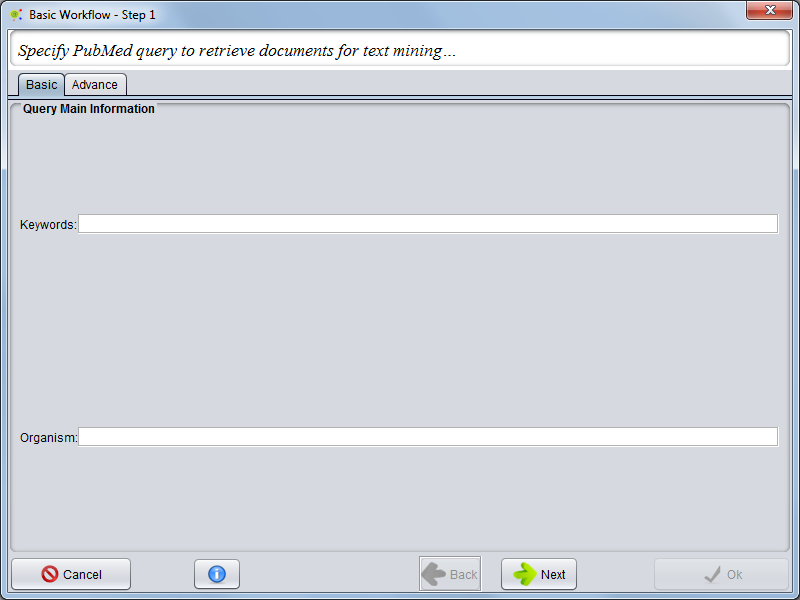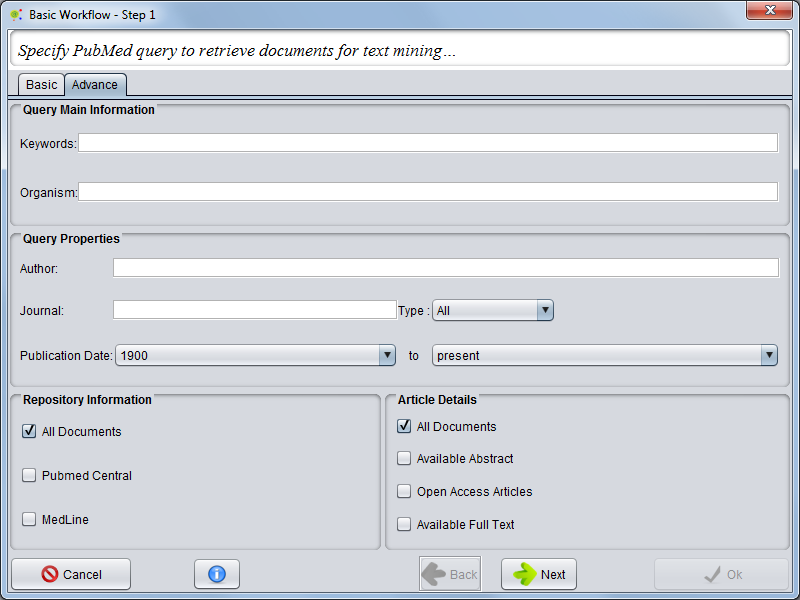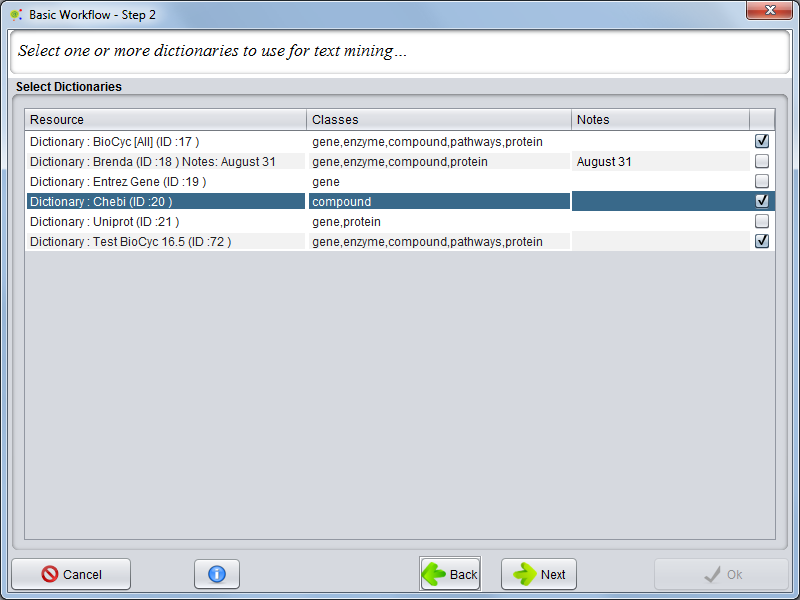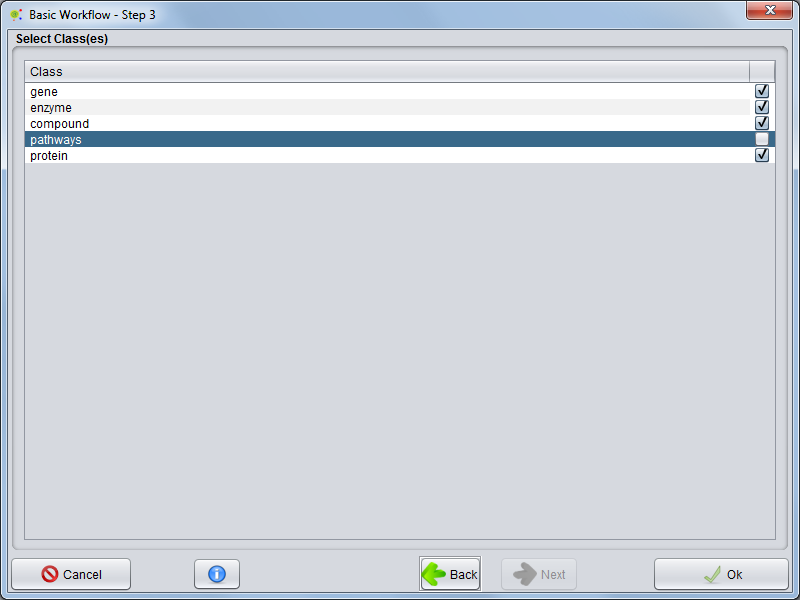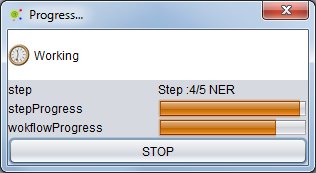Difference between revisions of "Workflow : Information Retrieval and Extraction Basic"
Anote2Wiki (talk | contribs) |
Anote2Wiki (talk | contribs) |
||
| Line 13: | Line 13: | ||
== Step 1: Pubmed Search == | == Step 1: Pubmed Search == | ||
| − | in the first panel, you can select a | + | in the first panel, you can select a basic query or an advanced query to submit to Pubmed Search. |
| − | === | + | === Basic search === |
| − | In | + | In the Basic search tab, you can only select keywords and organism. |
| Line 25: | Line 25: | ||
=== Advanced Search === | === Advanced Search === | ||
| − | In Advanced search | + | In Advanced search, you can restrict the search to a specific organism or keywords and can also select the name of an author, a journal, the type of article, if the article is present in PubMed Central or Medline, if full text is available or select a publication date range. |
| Line 33: | Line 33: | ||
== Step 2: Dictionaries Selection == | == Step 2: Dictionaries Selection == | ||
| − | In the next panel, '''select dictionaries''' | + | In the next panel, '''select dictionaries''', dictionaries can be added to the set that will be used in the NER process. |
| − | When dictionaries are selected, press '''Next'''. | + | When all dictionaries are selected, press '''Next'''. |
| + | |||
[[File:Workflow_Basic_3.png|center|800px]] | [[File:Workflow_Basic_3.png|center|800px]] | ||
| + | |||
== Step 3: Class(es) Selection == | == Step 3: Class(es) Selection == | ||
In the next panel, for all '''dictionaries''' previously selected you can '''filter for classes'''. | In the next panel, for all '''dictionaries''' previously selected you can '''filter for classes'''. | ||
| − | Pressing '''Next | + | Pressing '''Next''', the Workflow is started. |
| + | |||
[[File:Workflow_Basic_4.png|center|800px]] | [[File:Workflow_Basic_4.png|center|800px]] | ||
| Line 48: | Line 51: | ||
== Processing == | == Processing == | ||
| − | As the process proceeds you can check the status | + | As the process proceeds you can check the progress status looking at the bar. |
Revision as of 15:48, 12 June 2013
Contents
Operation
The basic workflow for Information Retrieval and Extraction allows you to set up some tasks in @Note, including the Journal Retrieval, Corpus creation, NER and RE Processes with a minimal set of configuration steps.
To run the workflow, you must select the option Workflow -> Information Retrieval and Extraction Basic on the Menu Bar.
Step 1: Pubmed Search
in the first panel, you can select a basic query or an advanced query to submit to Pubmed Search.
Basic search
In the Basic search tab, you can only select keywords and organism.
Advanced Search
In Advanced search, you can restrict the search to a specific organism or keywords and can also select the name of an author, a journal, the type of article, if the article is present in PubMed Central or Medline, if full text is available or select a publication date range.
Step 2: Dictionaries Selection
In the next panel, select dictionaries, dictionaries can be added to the set that will be used in the NER process. When all dictionaries are selected, press Next.
Step 3: Class(es) Selection
In the next panel, for all dictionaries previously selected you can filter for classes. Pressing Next, the Workflow is started.
Processing
As the process proceeds you can check the progress status looking at the bar.
Workflow Report
As a result of the process, a Workflow_report is shown.
